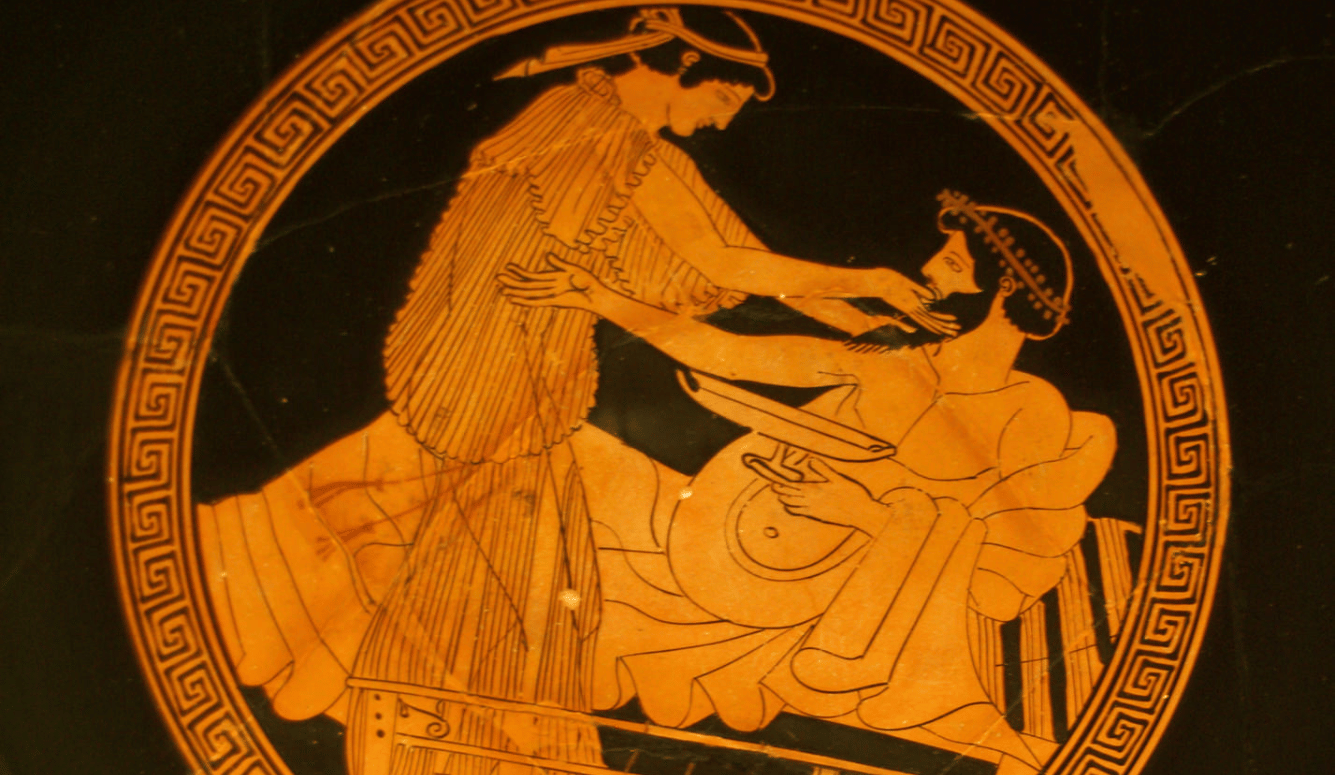Greece
Monogamy and the Making of Western Civilisation
The institution of monogamy in Classical Greece may have led to a host of phenomena that shaped the modern West: from individualism and abstract thinking to liberalism and democracy.

Could polyamory be on the rise? A November 2023 study found that a third of heterosexual British men were open to having more than one partner, and so—more surprisingly—were 11 percent of women. But how many of us are actually polyamorous? Another recent study found that only 2.4 percent of Canadians were currently in a polyamorous arrangement, though fully a fifth reported some experience of open relationships. That study also found that polyamorists tend to be young, and polyamory certainly seems to be growing more popular among educational and social elites. (The most notorious example of an egg-headed polyamorist close to the levers of power is probably Neil Ferguson, who was caught breaking COVID rules to visit his lover—who is also his friend’s wife—not long after his epidemiological modelling played a key role in sending the world into lockdown.)
It’s not hard to see why polyamorists in traditionally Christian societies view themselves as a daring vanguard, bravely testing the boundaries of convention. A deeper look at the history of the practice, though, reveals that they may be the ultimate reactionaries. It was largely Christianity that brought the real revolution in Western family structure to fruition, a revolution that may have paved the way for other Western innovations, from equal citizenship rights to liberalism itself. To understand this fully, we need go back beyond Christianity to classical Greece and Rome, where the true origins of Western monogamy may lie.
We should not underestimate just how historically unusual monogamy is, especially in the strict form that has long been seen as normative—and normal—in the West. Only 16 percent of the societies listed in the standard Ethnographic Atlas are described as monogamous. Even the looser form of monogamy that was practised in ancient Greece and Rome—where men could have extra-marital sex with other free men, with slaves, and with a variety of different sorts of sex-workers, but were only allowed to have one wife—is highly unusual. The form of monogamy mandated by the Christian Church, in which men were expected to restrict their sexual activities to their wives, is even more so. Many non-Christian countries only outlawed polygamy in the twentieth century under moral pressure from the West. China did not ban the practice until 1953.





